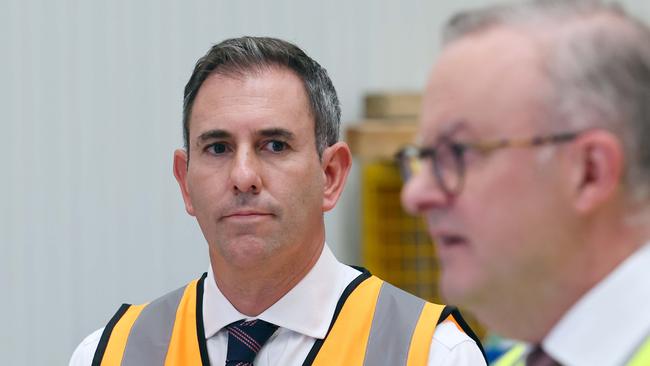Labor warned of super tax ‘erosion of savings’
The nation’s peak tax bodies have recommended that the $3m threshold be indexed.

The nation’s peak tax bodies have joined the Actuaries Institute in slamming the design of Labor’s additional tax on Australians with superannuation savings above $3m, warning the proposed legislative changes risk “many unintended consequences”.
The Tax Institute, in its submission to a Senate committee considering the legislation, said it “remains concerned about several aspects of the bills, most notably the precedent introduced by taxation of unrealised capital gains”.
The Institute of Public Accountants criticised the government for ignoring feedback on the draft legislation, saying “the government has not moved from its original intention and the deeply contentious elements remain intact”.
“Inclusion of unrealised capital gains in the methodology of calculating ‘earnings’ which will create many unintended consequences particularly for funds with illiquid assets that cannot be easily liquidated to meet (the) new Division 296 tax,” the IPA said.
“This can be disruptive to a small business operator (including farmers) who have their real property used in the business held by their SMSF,” the submission said.
The Senate committee is due to report by May 10 and the new super tax is set to begin from mid-2025.
CPA Australia said the government had acted “prematurely” in moving to legislate the tax before passing the super objective bill, and questioned whether the decision was motivated by budget considerations over broader issues of better super design.
The professional industry bodies broadly supported measures to make the superannuation system more equitable and sustainable, but raised concerns the impetus was revenue raising, rather than a better superannuation regime.
The CPA said “it is important to emphasise that fiscal measures only focused on improving the budget should not be the sole impetus behind this measure”.
The Treasurer said the new 30 per cent tax rate would affect only 80,000 in 2025-26.
But with no plans to index the $3m threshold, experts have raised concerns that more savers over coming years would wind up paying the additional tax.
The CPA in its submission reiterated this concern.
“Superannuation is a long-term investment, and the anomalous lack of indexation threatens to expose Australians in the future to inflation risk resulting in higher taxation of smaller real amounts of retirement savings,” it said.
“We recommend that the $3m threshold be indexed to prevent this erosion of retirement savings.”
The Actuaries Institute in its submission said it “remains concerned about several aspects of the bills, most notably the precedent introduced by taxation of unrealised capital gains”.
With the start date from mid-next year, the group said it had “heightened concern about orderly implementation of the measures”.
Jim Chalmers in February last year reneged on the government’s pre-election pledge to not lift taxes on superannuation, announcing he planned to introduce an additional 15 per cent tax on earnings on super balances above $3m. The earnings would be calculated as the difference between the total super balance in one year versus the next, adjusted for withdrawals and contributions.
The proposed formula for calculating earnings on super balances above the $3m balance threshold “includes all notional (unrealised) gains and losses”.
Losses, as measured under the proposed formula, in any given year could offset future earnings, Treasury has noted.
The professional bodies, however, raised concerns there was no mechanism for savers to recoup the extra tax paid on earnings from an asset that had dropped back below its initial value and never recovered.
Farmers who own their land through super are among those worried that the Albanese government’s proposed changes could see them paying extra tax on changes in the paper value of hugely volatile land prices. In the worst case scenario, they could be forced to sell assets to pay for the additional tax obligations arising from the rule changes.
As one expert noted following the release of the proposed bill, “it’s hard to sell a tiny bit of property to pay a tax bill”.
Anthony Albanese’s own department last year found Treasury failed to properly assess the impact of the government’s proposed $2bn-a-year super changes, labelling the process “insufficient”.
The independent Office of Impact Analysis concluded that Treasury failed to complete a proper impact analysis before the announcement of the planned changes on February 28.






To join the conversation, please log in. Don't have an account? Register
Join the conversation, you are commenting as Logout